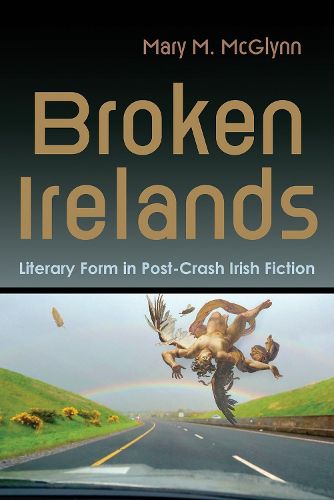Readings Newsletter
Become a Readings Member to make your shopping experience even easier.
Sign in or sign up for free!
You’re not far away from qualifying for FREE standard shipping within Australia
You’ve qualified for FREE standard shipping within Australia
The cart is loading…






While the national narrative coming out of Ireland since the 2008 economic crisis has been relentlessly sanguine, fiction has offered a more nuanced perspective from both well-established and emerging authors. In Broken Irelands, McGlynn examines Irish novels of the post-crash era, addressing the proliferation of writing that downplays realistic and grammatical coherence in works of fiction. Noting that these traits have the effect of diminishing human agency, blurring questions of responsibility, and emphasizing emotion over rationality, McGlynn argues that they are reflecting and responding to social and economic conditions during the global economic crisis and its aftermath of recession, austerity, and precarity.
Rather than focusing on overt discussions of the crash and recession, McGlynn explores how the dominance of an economic worldview, including a pervasive climate of financialized discourse, shapes the way stories are told. In the writing of such authors as Anne Enright, Colum McCann, Mike McCormack, and Lisa McInerney, McGlynn unpacks the ways that formal departures from realism through grammatical asymmetries like unconventional verb tenses, novel syntactic choices, and reliance on sentence fragments align with a cultural moment shaped by feelings of impotence and rhetorics of personal responsibility.
$9.00 standard shipping within Australia
FREE standard shipping within Australia for orders over $100.00
Express & International shipping calculated at checkout
While the national narrative coming out of Ireland since the 2008 economic crisis has been relentlessly sanguine, fiction has offered a more nuanced perspective from both well-established and emerging authors. In Broken Irelands, McGlynn examines Irish novels of the post-crash era, addressing the proliferation of writing that downplays realistic and grammatical coherence in works of fiction. Noting that these traits have the effect of diminishing human agency, blurring questions of responsibility, and emphasizing emotion over rationality, McGlynn argues that they are reflecting and responding to social and economic conditions during the global economic crisis and its aftermath of recession, austerity, and precarity.
Rather than focusing on overt discussions of the crash and recession, McGlynn explores how the dominance of an economic worldview, including a pervasive climate of financialized discourse, shapes the way stories are told. In the writing of such authors as Anne Enright, Colum McCann, Mike McCormack, and Lisa McInerney, McGlynn unpacks the ways that formal departures from realism through grammatical asymmetries like unconventional verb tenses, novel syntactic choices, and reliance on sentence fragments align with a cultural moment shaped by feelings of impotence and rhetorics of personal responsibility.